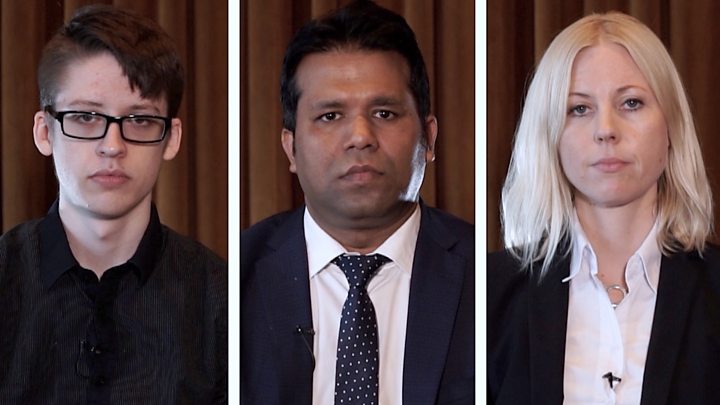Facebook Bows To Singapore's 'fake News' Law With Post 'correction'

 Image copyright
Reuters
Image copyright
Reuters
Facebook has added a correction notice to a post that Singapore's government said contained false information.
It is the first time Facebook has issued such a notice under the city-state's controversial "fake news" law.
Singapore claimed the post, by fringe news site States Times Review (STR), contained "scurrilous accusations".
The note issued by the social media giant said it "is legally required to tell you that the Singapore government says this post has false information".
Facebook's addition was embedded at the bottom of the original post, which was not altered. It was only visible to social media users in Singapore.
In an emailed statement to the BBC, Facebook said it had applied a label to a post "determined by the Singapore government to contain false information", as required under the "fake news" law.
The company - which has its Asia headquarters in the city-state - said it hoped assurances that the law would not impact on free expression "will lead to a measured and transparent approach to implementation".
How did we get here?
The States Times Review post contained accusations about the arrest of an alleged whistleblower and election-rigging.
The government said no one had been arrested, and accused the STR of making "scurrilous accusations against the elections department, the prime minister, and the election process in Singapore".
Authorities ordered editor Alex Tan to correct the post but the Australian citizen refused, saying he would "not comply with any order from a foreign government".
Authorities then called on Facebook to "publish a correction notice" in line with the "fake news" law passed earlier this year.
What is the 'fake news' law?
The law, known as the Protection from Online Falsehoods and Manipulation bill, came into effect in October.
It allows the government to order online platforms to remove and correct what it deems to be false statements that are "against the public interest".
A person found guilty of doing this in Singapore could be fined heavily and face a prison sentence of up to five years.
The law also bans the use of fake accounts or bots to spread fake news - this carries penalties of up to S$1m (£563,000, $733,700) and a jail term of up to 10 years.
What's been said about it?
Critics say the law threatens freedom of expression. Amnesty International said it would "give authorities unchecked powers to clamp down on online views of which it disapproves".
But Singapore's law minister said free speech "should not be affected by this bill", adding that it was aimed only at tackling "falsehoods, bots, trolls and fake accounts".
The government has argued that the law safeguards against abuse of power by allowing judicial reviews of its orders.
Has anyone else been affected?
Singapore's government invoked the law for the first time on Monday to order opposition politician Brad Bowyer to correct a Facebook post questioning the independence of state investment funds.
Mr Bowyer complied, adding a note to the post saying it "contains false statements of fact".
On the same day, Mr Bowyer wrote a new post saying he was "not against being asked to make clarifications or corrections especially if it is in the public interest".
But on Thursday, Mr Bowyer clarified his earlier statement, saying: "Although I have no problems in following the law...that does not mean that I agree with the position they are taking or admit to any false statements on my part."
He also said that, under the law, he must post the correction notice "regardless of whether I make an appeal".
You might also be interested in:

Media playback is unsupported on your device
From Chip War To Cloud War: The Next Frontier In Global Tech Competition
The global chip war, characterized by intense competition among nations and corporations for supremacy in semiconductor ... Read more
The High Stakes Of Tech Regulation: Security Risks And Market Dynamics
The influence of tech giants in the global economy continues to grow, raising crucial questions about how to balance sec... Read more
The Tyranny Of Instagram Interiors: Why It's Time To Break Free From Algorithm-Driven Aesthetics
Instagram has become a dominant force in shaping interior design trends, offering a seemingly endless stream of inspirat... Read more
The Data Crunch In AI: Strategies For Sustainability
Exploring solutions to the imminent exhaustion of internet data for AI training.As the artificial intelligence (AI) indu... Read more
Google Abandons Four-Year Effort To Remove Cookies From Chrome Browser
After four years of dedicated effort, Google has decided to abandon its plan to remove third-party cookies from its Chro... Read more
LinkedIn Embraces AI And Gamification To Drive User Engagement And Revenue
In an effort to tackle slowing revenue growth and enhance user engagement, LinkedIn is turning to artificial intelligenc... Read more

